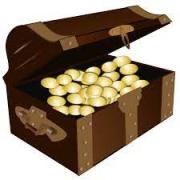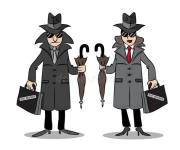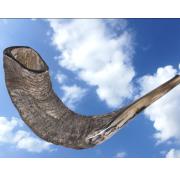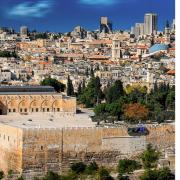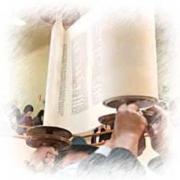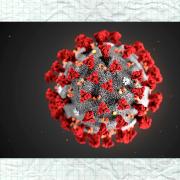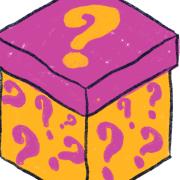The Sound Of The Clock
Have you ever tried to hear the sound of a clock?
In Parashat Terumah 25:31-40, "Hashem tells Moshe Rabbeinu to build a Menorah from a pure gold, hammered out shall the Menorah be made." The Hallacha says that if parts of it were made separately and then attached later on to make it look like one piece, this would make the Menorah not kosher and not fit for the service. Midrash Tanchuma tells us even more interesting details. Moshe could not visualize how the Menorah should look, so Hashem showed a Menorah of fire. Even then, he could not understand how to make it, so Hashem told him to throw the ingot, a huge solid chunk of gold, into the fire, and voila! A completed golden Menorah emerged from the fire, as explained by Rashi.
So, why must the Menorah be made from one solid piece of gold? And why does it need to be hammered out to give it the shape and look of the Menorah? Let's try to answer these questions.
In Parashat Ki Tisa 32:1-5, when people approached Aharon HaCohen after killing Chur and asked him to make them an intermediary between them and Hashem. Aharon’s response was - Bring me the gold. He thought that till they go and get the gold from the ladies, who will not be very thrilled about the idea of parting with their jewelry, Moshe Rabbeinu would come. Just like he suspected - the women refused to give their jewelry, but he didn’t expect men to give their own instead. So, in no time, they have gathered the necessary amount of gold for their project. Aharon HaCohen threw that gold into the fire, and from that fire, the golden calf emerged.
This is where I would like to analyze these two events closely.
Do you realize what happened? These two scenarios are very similar but with different outcomes and responses. When Moshe Rabbeinu was presented with a task he did not fully grasp, his response was, "I don’t know, or I am not sure and I have to ask Hashem," as it was in the making of the Menorah we have discussed above, also judging the cases like with wood-gatherer or blasphemer in Parashat Shelach and Emor. But Aharon HaCohen's response was, "Bring me the gold."
I strongly believe that Hashem put Aharon HaCohen in this situation so that Aharon would turn to Heaven and ask Hashem for assistance, and this is where something amazing would have happened. Aharon HaCohen would have risen in the level of prophecy, Hashem would have answered him and made him much closer to Himself, to the point where he would have been not far away in prophecy from Moshe’s level.
Even in Parashat Balak, when the delegation came to Bilaam HaRasha to invite him to "bless the Jewish Nation," his first response was - I need to ask Hashem.
But since Aharon HaCohen made the call and did not get Hashem involved, his closeness was postponed and has taken a different road.
By the way, how big was Moshe Rabbenu's level, or how close was he to Hashem? When Miriam and Aharon were discussing Moshe’s behavior towards his wife Tziporah, Hashem told them that they were nowhere near Moshe since he was - the trusted one in His house, and his level of prophecy was far above anyone. (Parashat Behaalotcha 12:4-9)
Now, Hashem needs to bring Aharon HaCohen closer to Himself, but how can He do that? Aharon could have had that level by requesting help from Hashem, but since he did not turn to Hashem when he was in the situation of a golden calf, going forward, he had to put in the required work and years of effort to attain it.
So, in Parashat Behaalotcha 8:1, Hashem commands Aharon HaCohen to light the Menorah and makes it a part of the daily service in the Bet Hamikdash, thus bringing him closer to Hashem.
How do we know that Aharon HaCohen succeeded in this task and came closer to Hashem and those lofty levels?
Centuries later, King David wrote in the Book of Tehillim, in Psalm 99: "Moshe, Ve Aharon be Kohanav, u Shmuel be Kore Shemo, Korim El Hashem Ve Hu Yaanem - Moshe and Aharon are among his priests, and Shmuel among those who invoke His name, they would call to Hashem and He would respond to them." King David confirmed in prophecy that Aharon HaCohen was able to accomplish that closeness with Hashem, and rose in the level of prophecy.
My dear reader, let me ask you a question. When you are in a situation where you can do good or evil, do you call out to Hashem? Do you ask Him for His opinion on how to respond to the situation you may be in? Do you bring the Torah knowledge or life experiences to your memory, the values you have been brought up with or learned in life, to ensure you make the best possible decision?
Hashem puts us in situations just to see the type of decisions we will make, and then we have to live and deal with those decisions and their consequences - be it man to man or man to G-d.
Each of us hammers out his own Golden/Spiritual Menorah by the decisions we make down here on Earth. Every move we make, every decision we make, and every statement we make - slams and hammers out a dent on our own Menorah for Hashem to view in the spiritual realm, which is the only place where it is all truth, where one can't mask those dents, or lie about them.
Some have nice and symmetric menorahs - Kudos to them since lots of work went into them, and it's not an easy task. The rest of us may have very dented, twisted proportions and ugly-looking shapes. But these are our menorahs, and we keep on hammering away on them daily, hopefully bringing our menorahs to the right symmetry, and making them look nicer than they previously were.
Shhh..quiet down a bit and listen. Do you hear the sound of the clock—tick-tock, tick-tock, tick-tock? How does your menorah look? Do you think you'll have enough time to fix it?
Our decisions of the past and in the future make dents that matter. Whether good or bad, it is our dents and responsibility - made by us and for us to fix. Decisions...an unending flow of more decisions pounding on us daily...it’s time to own up to those decisions. Maybe after 120, when we have had our chance to work on our menorahs, we won't be ashamed to view them, and we will be the Cohanim Gedolim of our Menorahs. We will light it daily in front of Hashem and come closer and closer to Hashem - just like Aharon HaCohen did.
So, now, do you hear the sound of the clock? It is always ticking away...nonstop, without skipping a beat, and not waiting for anyone. There's no way to stop it but to use it to our advantage. There's so much to fix and so little time to do it. How does your menorah look? Maybe the time has come to make the right dents?!!
Shmuel Katanov






